How To Grow A Bonsai Apple Tree That Produces Fruit
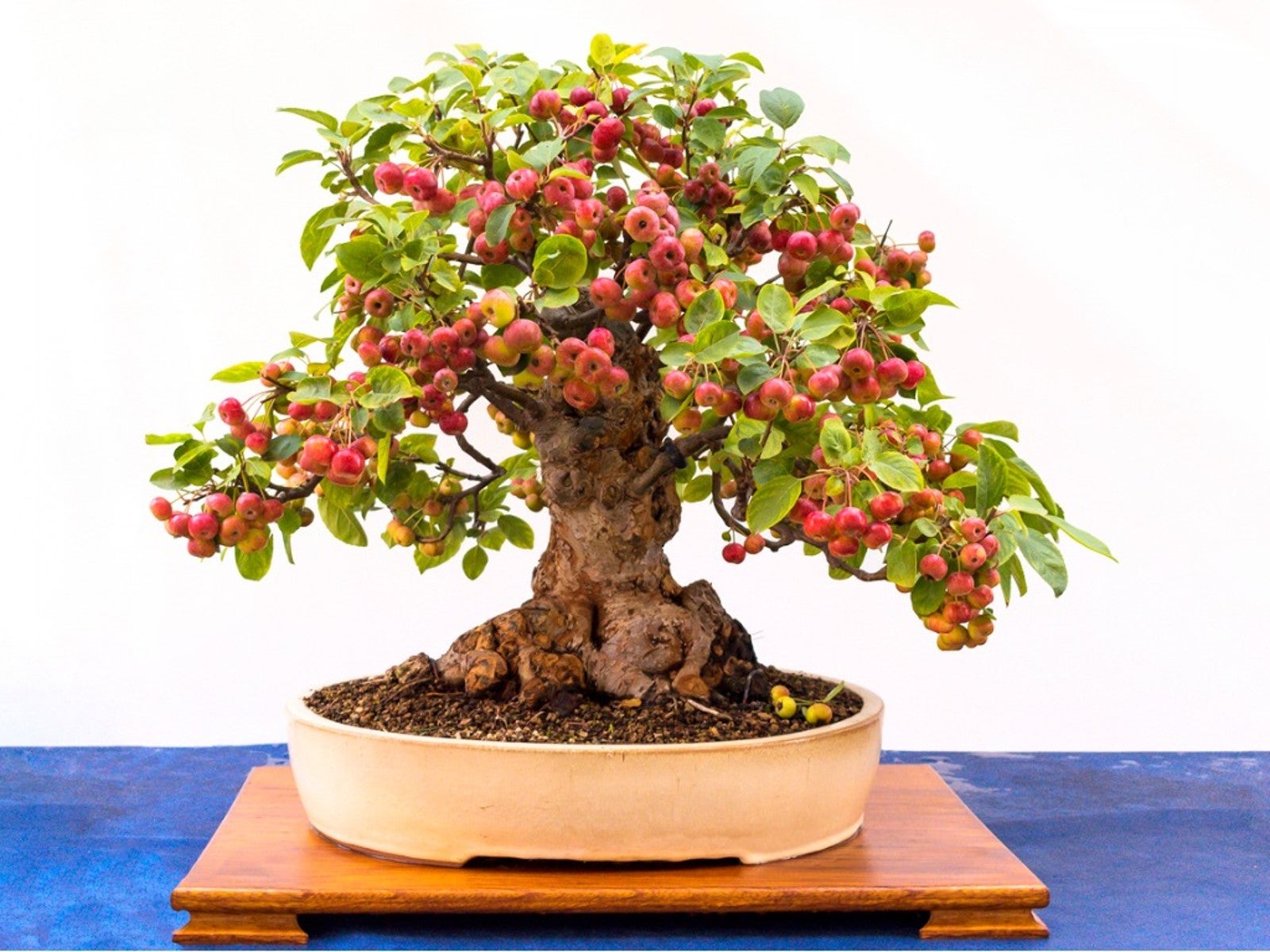

Not every tree will do well as bonsai species. These “trees in pots” are intended to look like miniature versions of mature trees, with compact, rounded canopies. For an effective bonsai, all parts of the dwarf tree must be in proportion to its reduced size, including leaves, branches, and fruits.
One tree that works perfectly for bonsai styling is the apple. If you are interested in learning about dwarf bonsai apple trees – or creating one - read on. We’ll give you the information you need to get started.
Apple Tree Bonsai
How small is a bonsai? There are a range of possible sizes for bonsai trees. These can be very short - under 5 inches (12.7 cm.) tall -- to some 30 inches (76 cm.) tall. The key is to select a type of tree with small leaves that will work with the smaller size tree, or leaves that become small with bonsai treatment.
Bonsai Apple Trees
Apple trees (Malus spp) work well as bonsai plants, especially wild apples and ornamental apple trees like Malus toringo, Malus halliana and Malus cerasifers. They grow well and produce lots of blossoms and small fruits.
You can start your apple blossom bonsai tree from seeds quite easily. Apple seeds germinate well after several months of stratification in damp sand in the refrigerator. However, the seedlings might not look like the parent plant. You can get an exact replica of the parent by rooting cuttings instead.
Select a bonsai container that works with the proposed shape of the new tree. Experts suggest glazed bonsai pots.
Growing Your Bonsai
Apple tree bonsai care is not unlike the care of apple trees in your home orchard. The plants require regular irrigation, fertilization during the growing season, and sometimes, protection during cold weather. Position the potted tree in as sunny a place as possible – bonsai apple trees need a lot of sun and can tolerate heat. But don’t let the ground dry out. It’s best to use a bonsai fertilizer.
Gardening tips, videos, info and more delivered right to your inbox!
Sign up for the Gardening Know How newsletter today and receive a free copy of our e-book "How to Grow Delicious Tomatoes".
In addition, bonsai container trees require regular repotting. This repotting is not to install the plant in increasingly larger containers, but to trim the roots and add new soil. It’s a good rule of thumb to do this in early spring. Trim out about one-third of the roots and replace the soil with well-draining bonsai soil.
Creating the Bonsai
When you are creating an apple bonsai, whether a crab apple bonsai tree or an ornamental apple tree bonsai tree, bonsai styling is essential. You will have to wire the branches and prune them in order to shape the tree.
Wiring should be undertaken in early summer. The growth in thickness slows, allowing the wire to stay on the tree for some time while the shaped shoots harden. Pruning will require a bonsai concave cutter and the type of pruning depends on the desired shape of the tree. Popular styles for apple bonsais include informal upright and slightly inclined, although cascades are also possible.

Teo Spengler is a master gardener and a docent at the San Francisco Botanical Garden, where she hosts public tours. She has studied horticulture and written about nature, trees, plants, and gardening for more than two decades. Her extended family includes some 30 houseplants and hundreds of outdoor plants, including 250 trees, which are her main passion. Spengler currently splits her life between San Francisco and the French Basque Country, though she was raised in Alaska, giving her experience of gardening in a range of climates.
-
 Looking For Plants To Give You The Soft And Fuzzies? Try These 5 Fuzzy Leaf Plant Options
Looking For Plants To Give You The Soft And Fuzzies? Try These 5 Fuzzy Leaf Plant OptionsLovers of texture, drama, silver foliage and tactile plants will adore these special sensory garden additions. These fuzzy leaf plant options will leave you all aglow
By Susan Albert
-
 Get Ready For A Summer Of Hummers! Grow These Full Sun Hummingbird Plants and Flowers
Get Ready For A Summer Of Hummers! Grow These Full Sun Hummingbird Plants and FlowersIf you’re lucky enough to enjoy a sunny backyard, make sure you are maxing out on your pollinator opportunities and grow these full sun hummingbird plants and flowers
By Tonya Barnett
-
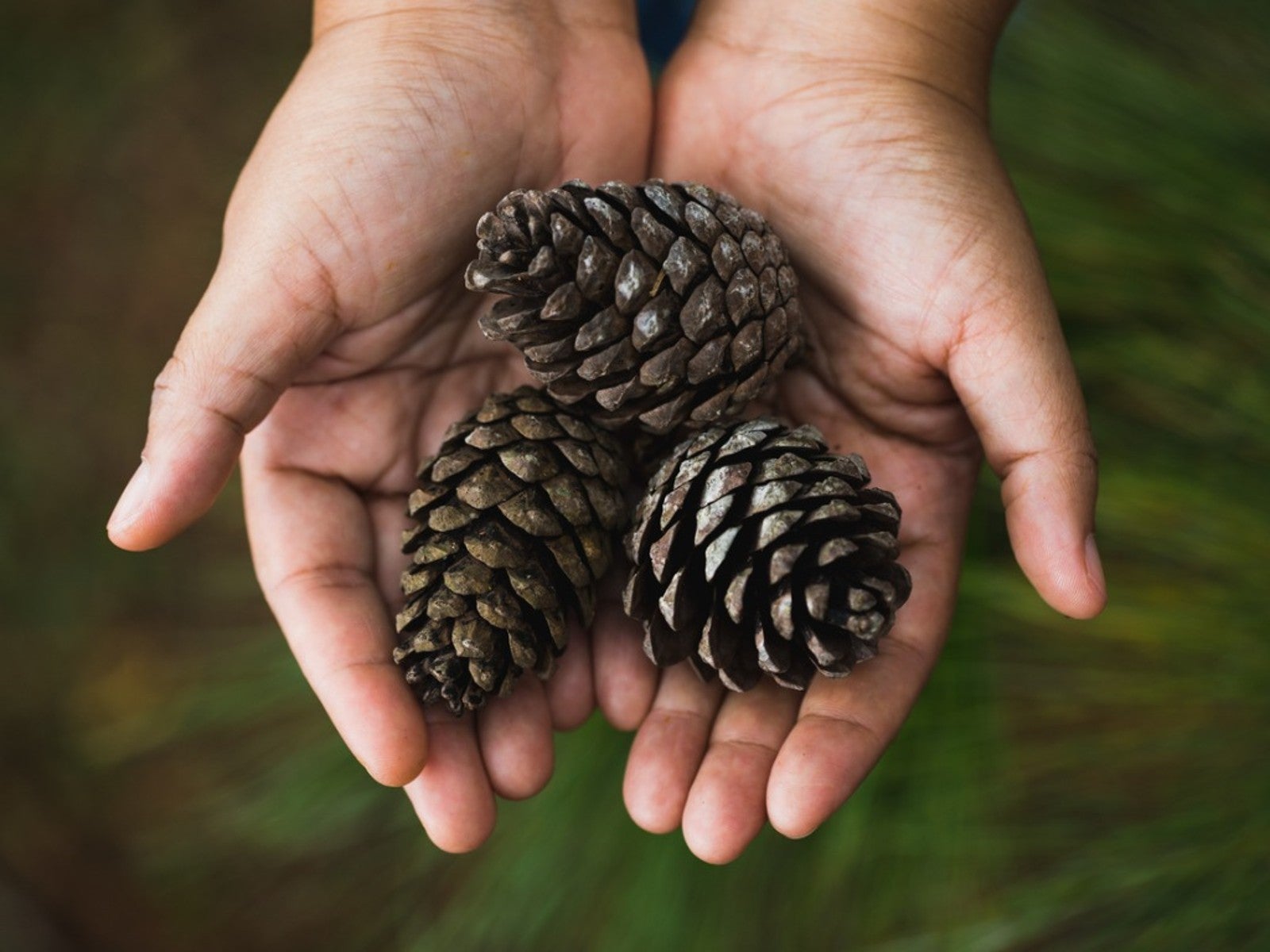 How To Grow A Pine Cone Bonsai Tree
How To Grow A Pine Cone Bonsai TreeWant to learn how to harvest seeds from a pine cone to start a pine cone bonsai tree? Click here to read all about it.
By Teo Spengler
-
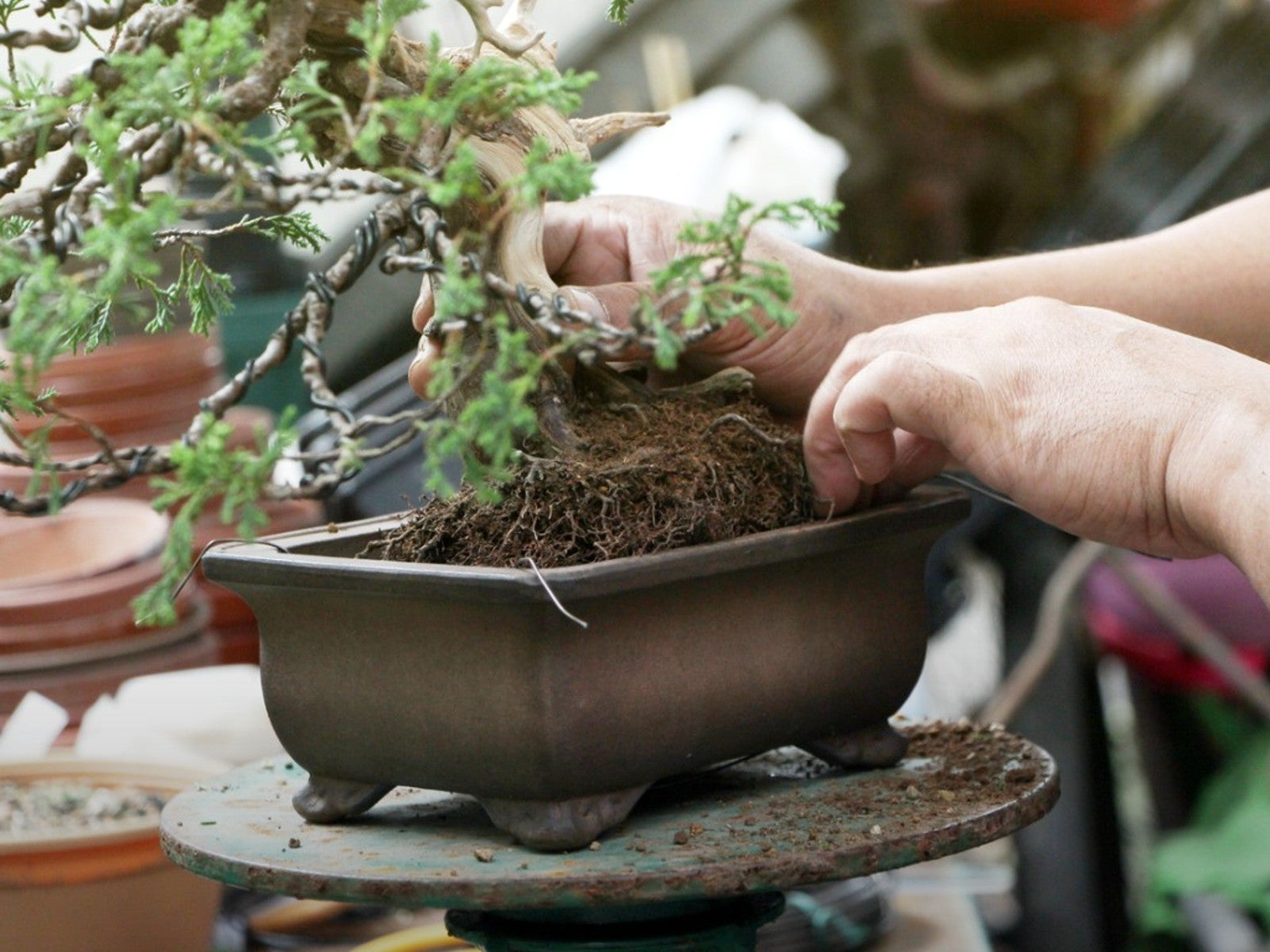 Tips For Repotting Bonsai Trees
Tips For Repotting Bonsai TreesThere’s an art to repotting a bonsai tree. Click here to learn how to do it successfully.
By Teo Spengler
-
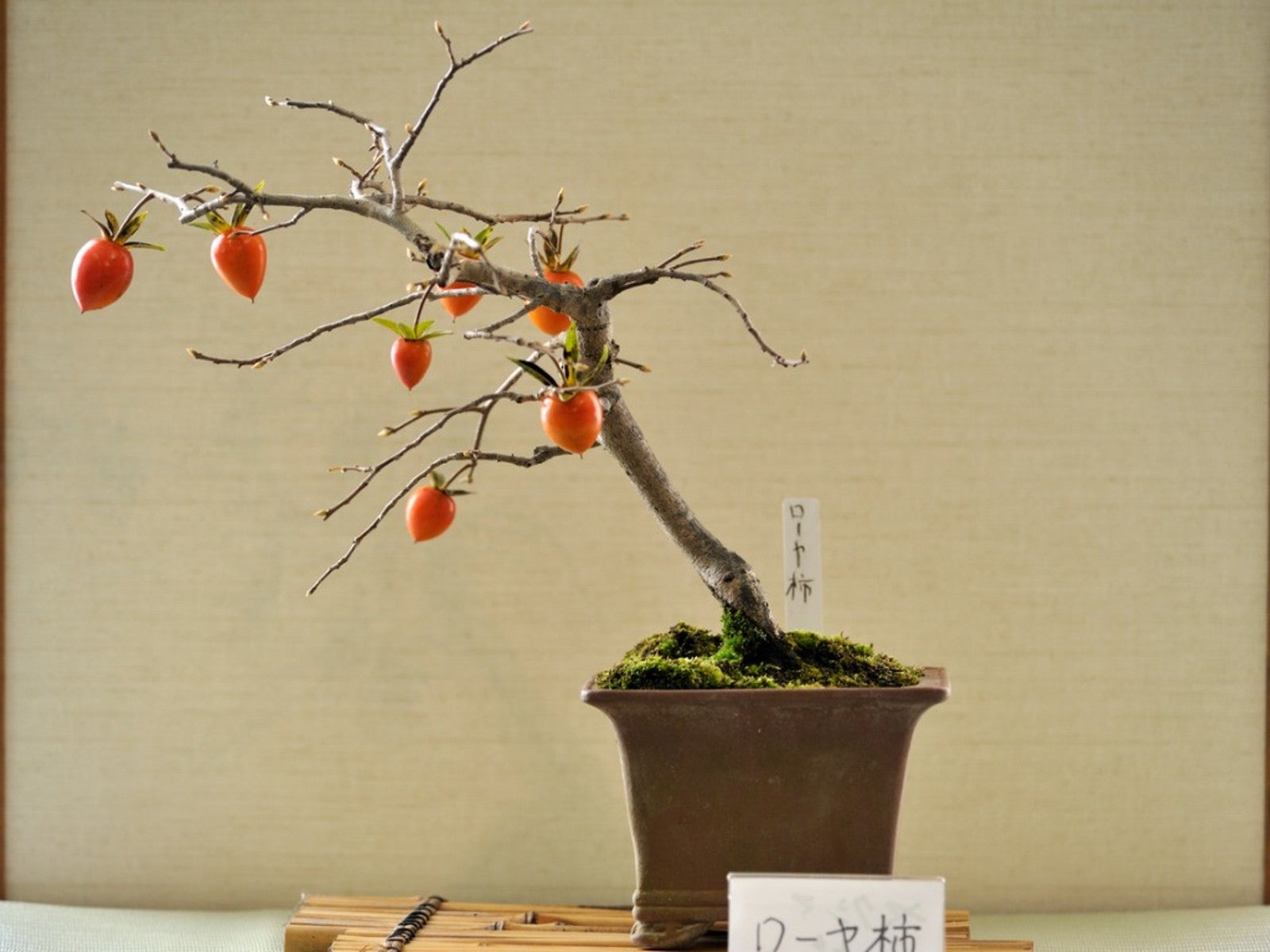 How To Grow A Persimmon Bonsai Tree
How To Grow A Persimmon Bonsai TreeAre you looking for a unique indoor plant that will light up your home? Creating a dwarf persimmon tree is an interesting project and lots of fun. Click here to learn more!
By Teo Spengler
-
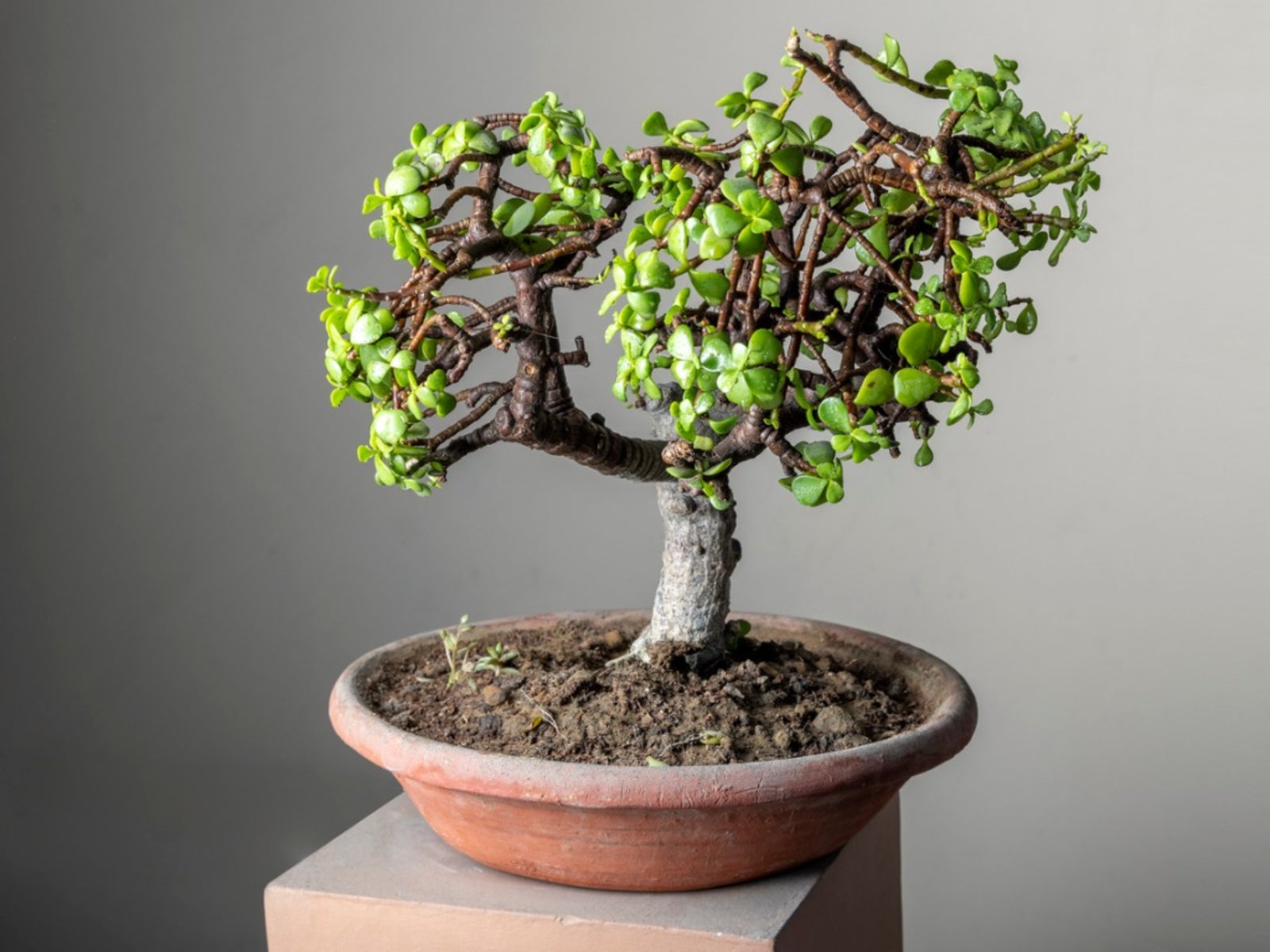 Succulent Bonsai Trees - Choosing Bonsai Looking Succulents
Succulent Bonsai Trees - Choosing Bonsai Looking SucculentsYou can create your own succulent bonsai trees quite easily. This is because many succulents are naturally tiny and hardy and don't mind the trimming required to make a bonsai form.
By Bonnie L. Grant
-
 Fukien Tea Tree Bonsai: How To Grow A Fukien Tea Tree
Fukien Tea Tree Bonsai: How To Grow A Fukien Tea TreeHeard about Fukien tea tree bonsais? Click this article for Fukien tea tree care and how to grow this interesting houseplant.
By Teo Spengler
-
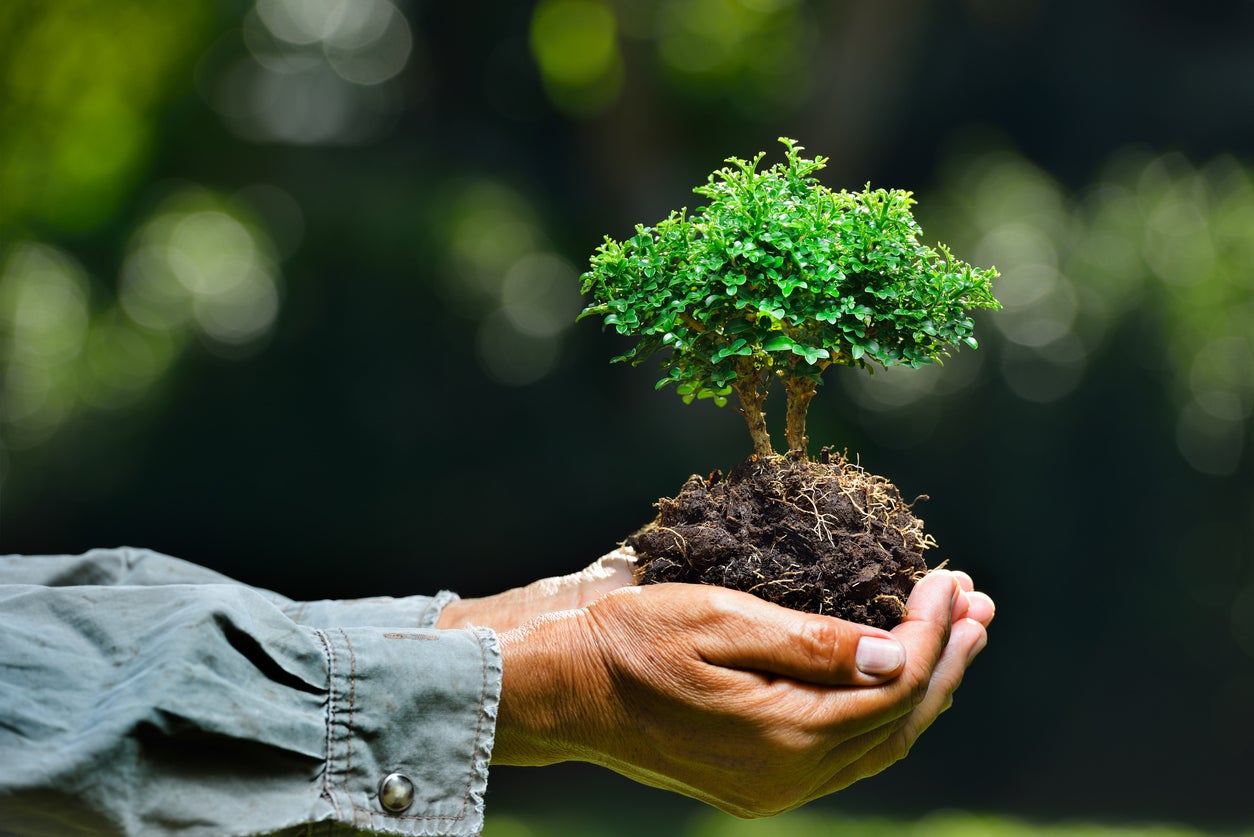 Bonsai Soil Requirements: How To Mix Soil For Bonsai Trees
Bonsai Soil Requirements: How To Mix Soil For Bonsai TreesWhat is bonsai soil made up of? As with the art itself, bonsai soil requirements are exacting and very specific. The following article contains bonsai soil information on how to make your own bonsai soil. Click this article for more information.
By Amy Grant
-
Bonsai Aquarium Plants – How To Grow Aqua Bonsai Trees
Bonsai trees that are kept tiny and carefully cared for in small pots can bring a real level of intrigue and beauty to the home. But is it possible to grow underwater bonsai trees? Learn more aquatic bonsai information, including how to grow aqua bonsai, in this article.
By Liz Baessler
-
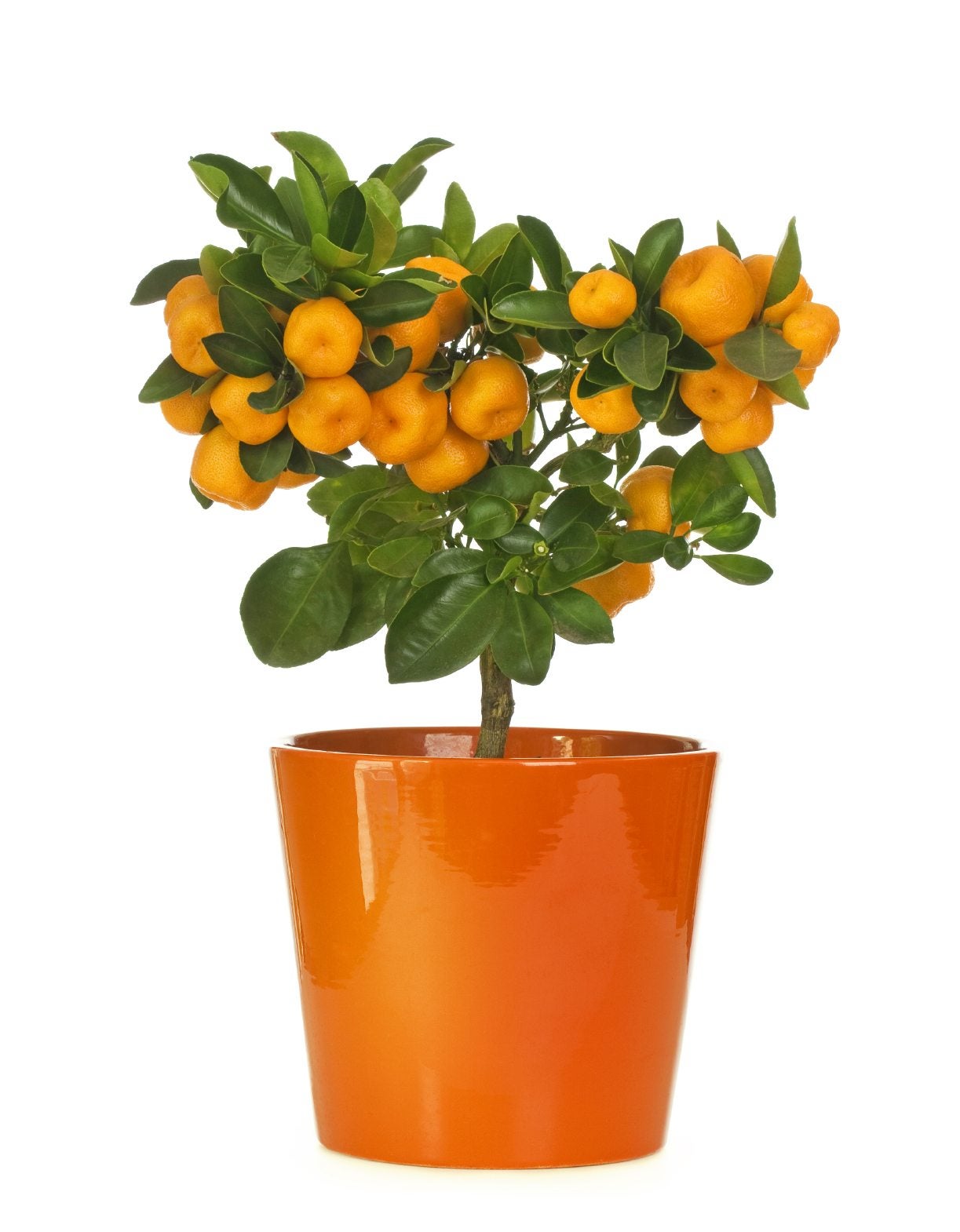 Growing Fruit Trees As Bonsai: Learn About Bonsai Fruit Tree Care
Growing Fruit Trees As Bonsai: Learn About Bonsai Fruit Tree CareIf you think bonsai are always tiny trees with fragrant flowers, you aren't alone. However, this is a misconception. You can also choose from a wide variety of fruit trees as bonsai. Learn more about bonsai fruit trees in this article.
By Teo Spengler